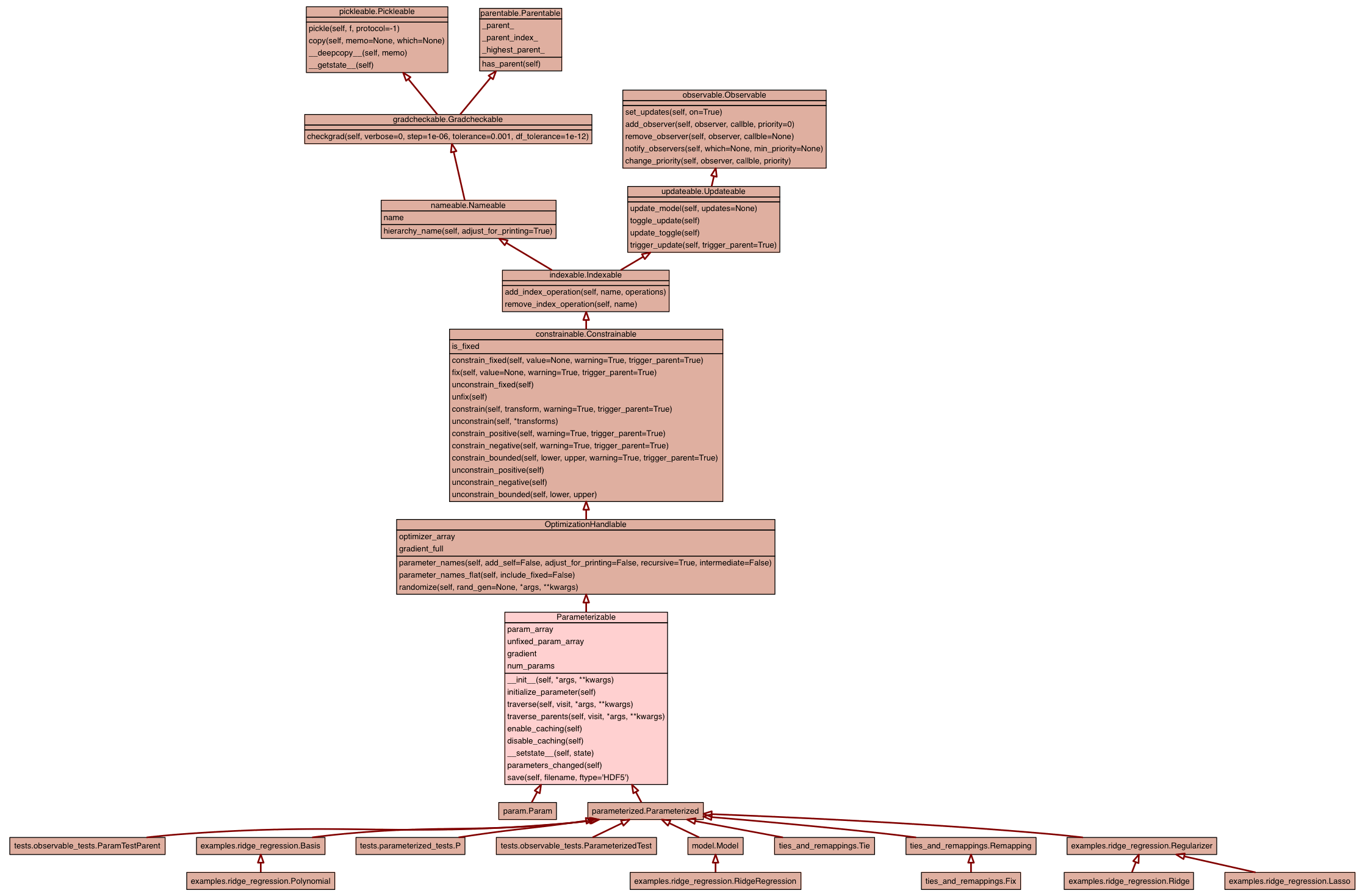A parameterisable class.
This class provides the parameters list (ArrayList) and standard
parameter handling, such as {link|unlink}_parameter(), traverse hierarchy
and param_array, gradient_array and the empty parameters_changed().
This class is abstract and should not be instantiated. Use
paramz.Parameterized() as node (or leaf) in the parameterized hierarchy.
Use paramz.Param() for a leaf in the parameterized hierarchy.
|
|
__init__(self,
*args,
**kwargs)
x.__init__(...) initializes x; see help(type(x)) for signature |
source code
|
|
|
|
|
|
|
traverse(self,
visit,
*args,
**kwargs)
Traverse the hierarchy performing `visit(self, *args, **kwargs)` at
every node passed by downwards. |
source code
|
|
|
|
|
|
|
traverse_parents(self,
visit,
*args,
**kwargs)
Traverse the hierarchy upwards, visiting all parents and their
children except self. |
source code
|
|
|
|
|
|
|
|
|
|
|
|
|
| _remove_parameter_name(self,
param=None,
pname=None) |
source code
|
|
|
|
|
|
|
|
|
|
_parameters_changed_notification(self,
me,
which=None)
In parameterizable we just need to make sure, that the next call to
optimizer_array will update the optimizer_array to the latest
parameters |
source code
|
|
|
|
| _pass_through_notify_observers(self,
me,
which=None) |
source code
|
|
|
|
|
|
|
|
|
|
|
|
|
save(self,
filename,
ftype='HDF5')
Save all the model parameters into a file (HDF5 by default). |
source code
|
|
|
Inherited from OptimizationHandlable:
parameter_names,
parameter_names_flat,
randomize
Inherited from constrainable.Constrainable:
constrain,
constrain_bounded,
constrain_fixed,
constrain_negative,
constrain_positive,
fix,
unconstrain,
unconstrain_bounded,
unconstrain_fixed,
unconstrain_negative,
unconstrain_positive,
unfix
Inherited from indexable.Indexable:
add_index_operation,
remove_index_operation
Inherited from nameable.Nameable:
hierarchy_name
Inherited from gradcheckable.Gradcheckable:
checkgrad
Inherited from pickleable.Pickleable:
__deepcopy__,
__getstate__,
copy,
pickle
Inherited from parentable.Parentable:
has_parent
Inherited from updateable.Updateable:
toggle_update,
trigger_update,
update_model,
update_toggle
Inherited from observable.Observable:
add_observer,
change_priority,
notify_observers,
remove_observer,
set_updates
Inherited from object:
__delattr__,
__format__,
__getattribute__,
__hash__,
__new__,
__reduce__,
__reduce_ex__,
__repr__,
__setattr__,
__sizeof__,
__str__,
__subclasshook__
|

